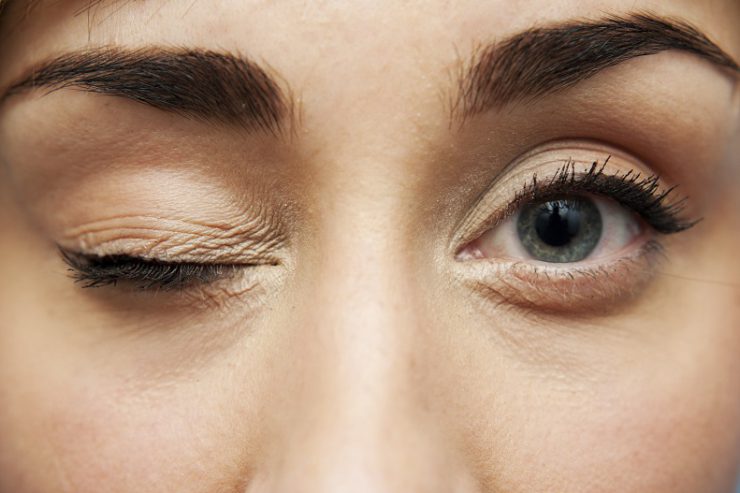You’ve probably experienced it at some point — you’re sitting or driving and suddenly your eyelid starts twitching for no apparent reason. It’s painless and usually stops on its own, but there’s nothing more irritating when you’re trying to focus. What causes your eyelid to twitch and how can you get it to stop?
There are a few reasons why your eyelid could be twitching. Although the real cause is unknown, eyelid twitching is usually associated with factors like:
- Stress
- Eye strain
- Lack of sleep
- Caffeine
- Allergies
- Tobacco or alcohol
You may get eyelid twitches after an all-nighter, or in the morning when your coffee begins to set in. Usually, eyelid twitches only come in spasms every couple seconds and go away after a minute or so. If they bother you, try cutting caffeine or changing your routine to get more sleep.
Never Miss a Beat!
Subscribe to Our HealthBeat Newsletter!
Thank you for subscribing!
You can now select the specific newsletters you'd like to receive.
You are already subscribed.
Subscribe to more newsletters in our email preference center.
Sorry, an error occurred. Please try again later.
Get Healthy Tips Sent to Your Phone!
How to Keep Your Eyelids from Twitching
In addition to minimizing the factors above, you can try putting hot or cold compresses on your face at night. Others find that a face steam helps soothe muscles and clean pores. If you have a massage therapist, they can help relieve stress or offer services like acupuncture.
Find a UPMC primary care physician. Call 1-855-676-UPMCPCP (8762) or visit UPMC Find a Doctor. For more information, visit the UPMC Primary Care website.
Severe Causes of Eyeball Twitching
Is your eyelid twitching or your eyeball twitching?
“There is a big difference between the eyelid and eye itself twitching,” Kevin M. Wong, MD, Westmoreland Family Medicine – UPMC, said, “Eyeball twitching can be a true medical problem.”
In rare cases, eyeball twitching may be associated with eye problems, brain or nerve problems, or medication side effects. Some possible eye problems include: pinkeye (conjunctivitis), dry eyes, inflammation of eyelids, or light sensitivity. Medications used to treat seizures or psychosis also have been known to cause some eyeball twitching.
If your eyeball twitching has to do with nerve or brain problems, chances are that you may be experiencing other symptoms. Some possible nerve or brain problems include:
- Tourette’s syndrome
- Bell’s palsy
- Parkinson’s disease
- Dystonia
- Multiple sclerosis
“If you can’t tell by feeling the lid actually moving, look in a mirror. It is easy to see the lid actually twitch,” Dr. Wong said. “Lid twitching is usually from one of the benign reasons listed, whereas eyeball twitching may represent a much more serious medical issue, for which a visit to the doctor is warranted.”
When to See a Doctor
Most eyelid twitching is not serious — it lasts for a minute and then goes away. However, you should see a doctor if:
- Other parts of your body are twitching
- Your eye twitching is painful
- Your eye looks infected — red, swollen, or leaking fluid
- The twitching does not go away by itself for a few weeks
- You have droopy eyelids or difficulty opening your eyes
About Primary Care
The relationship with a patient and their primary care doctor can be extremely valuable, and that’s what you get with UPMC Primary Care. When you work with a primary care physician (PCP), you develop a lasting relationship. Your doctor will get to know you and your history and can plan your treatments accordingly. Our PCPs offer a variety of services, including preventive care and treatment for both urgent and chronic conditions. With dozens of UPMC Primary Care locations across our network of care, you can find a PCP close to you. Schedule an appointment today.
